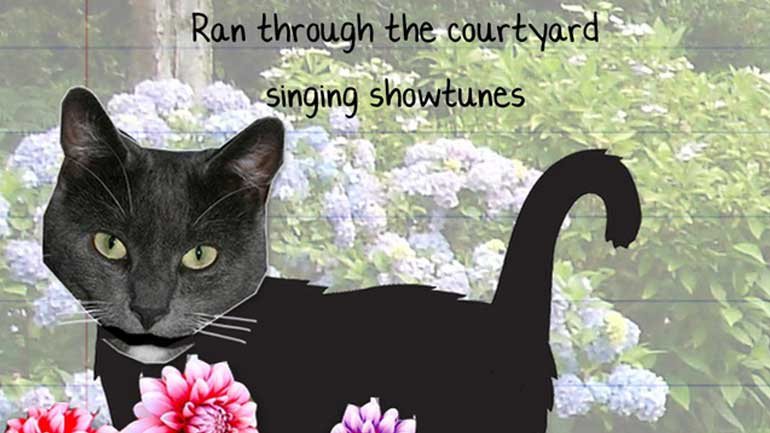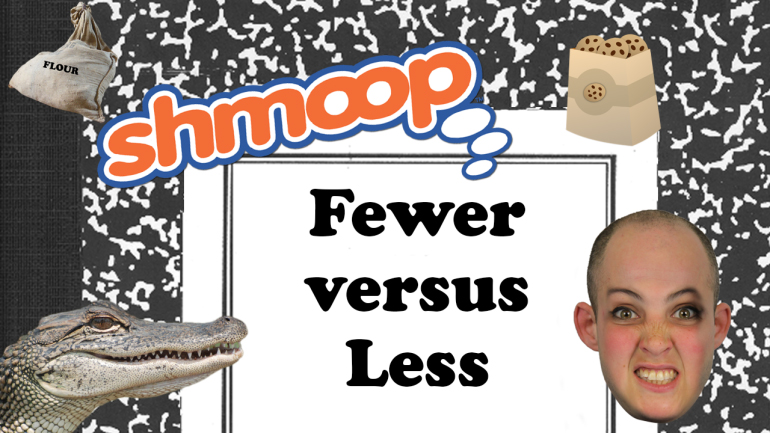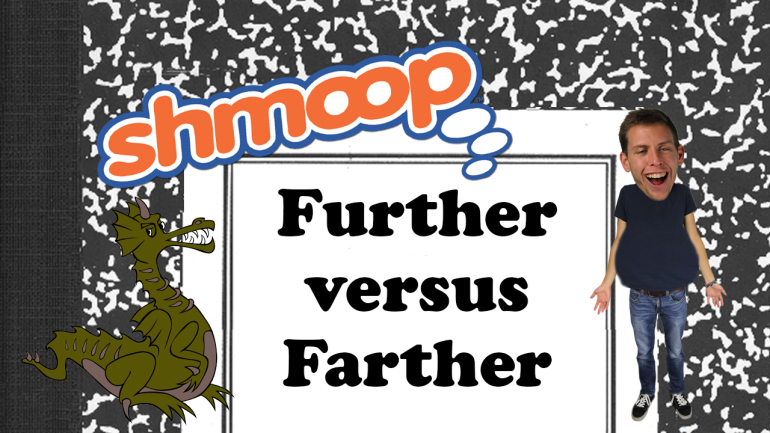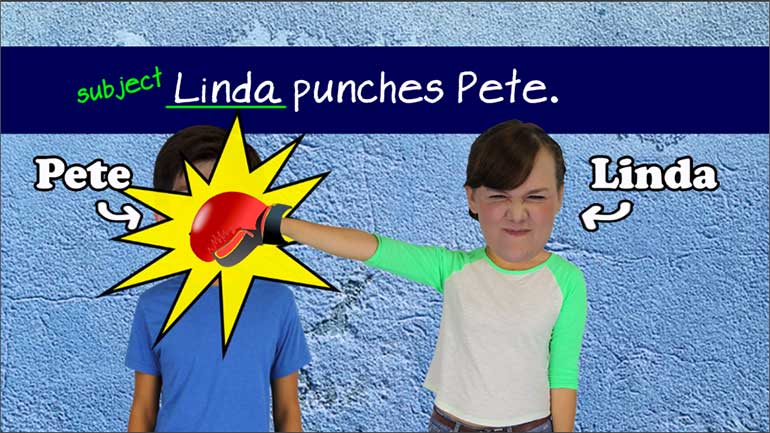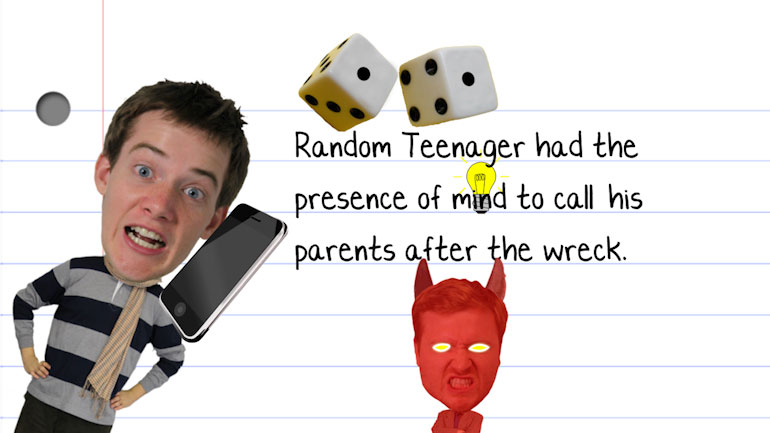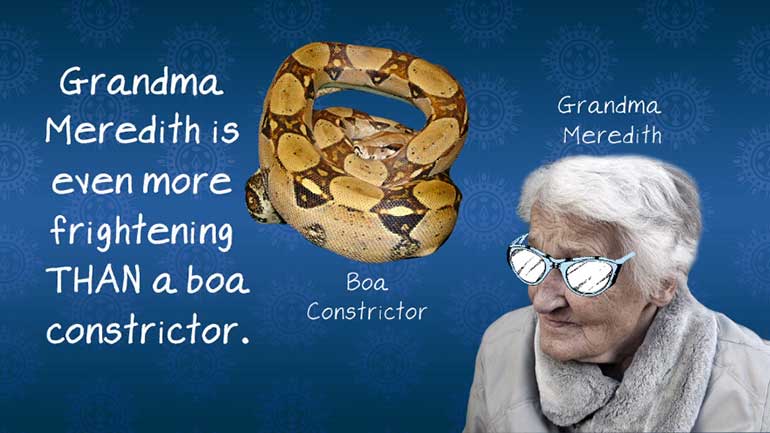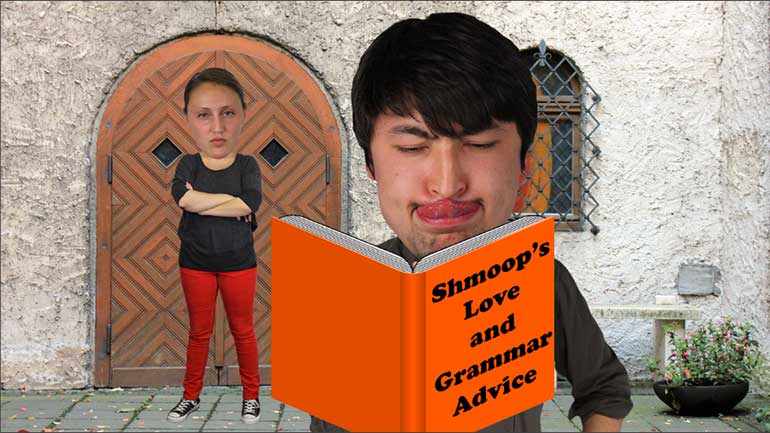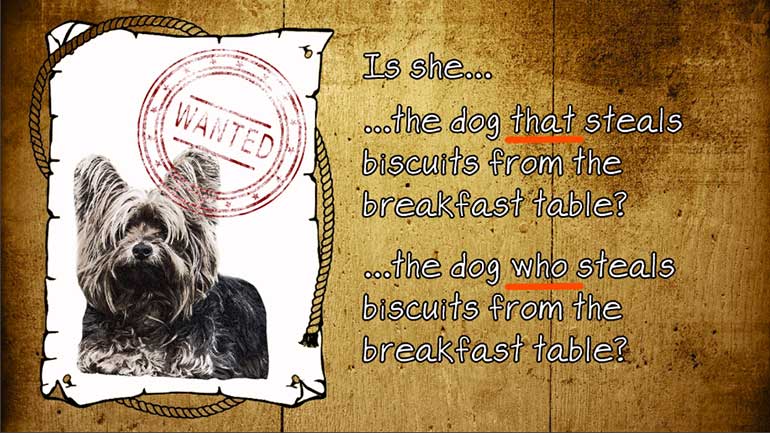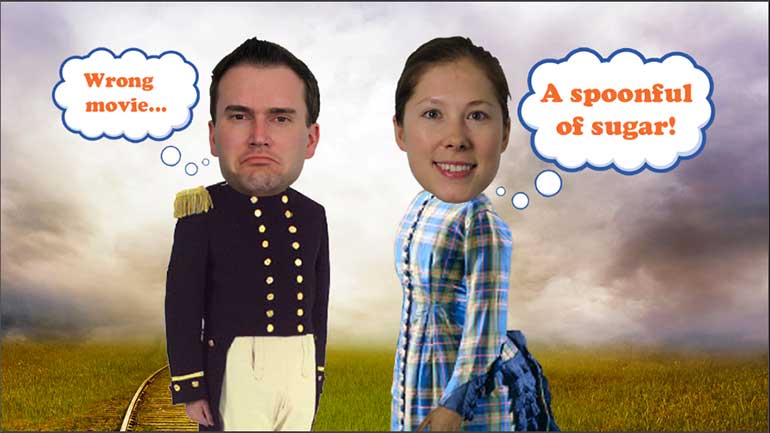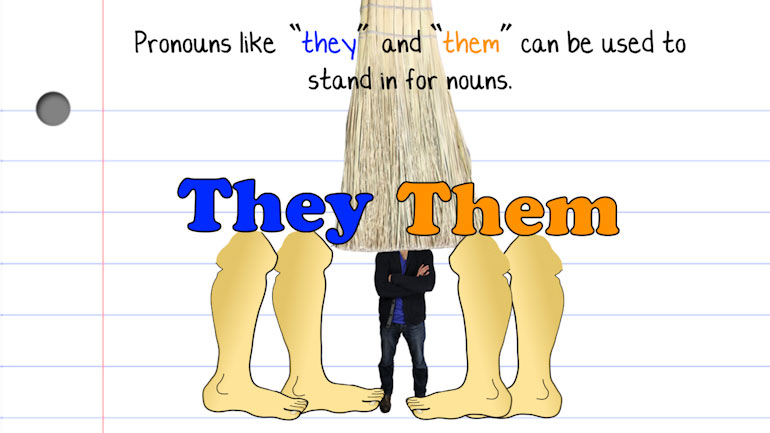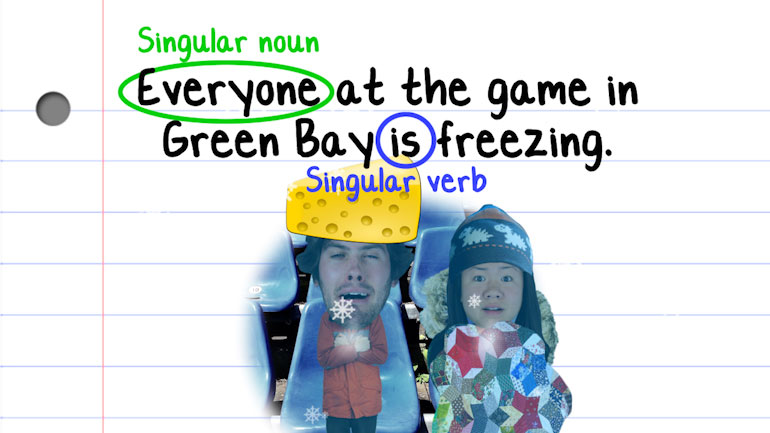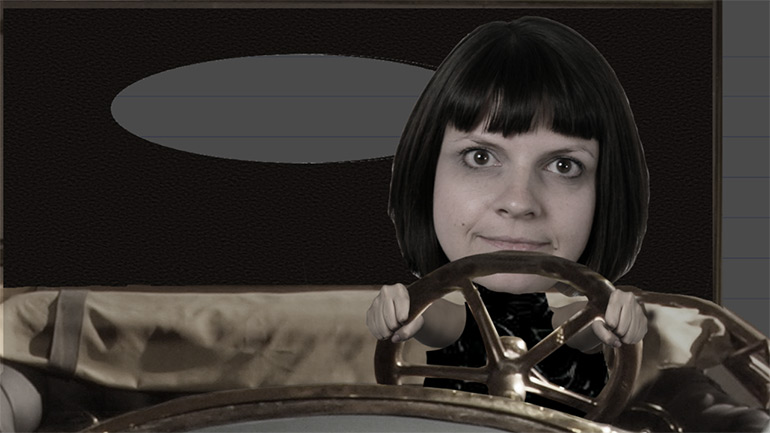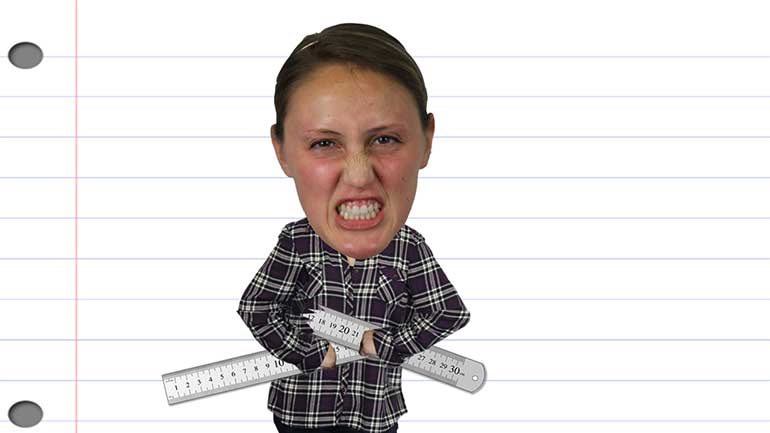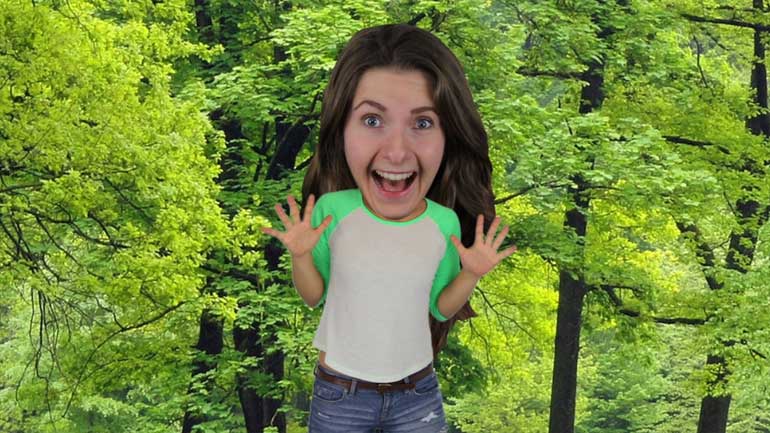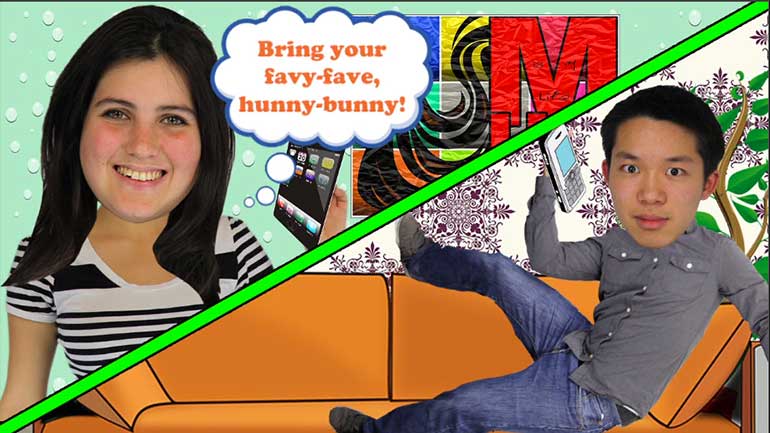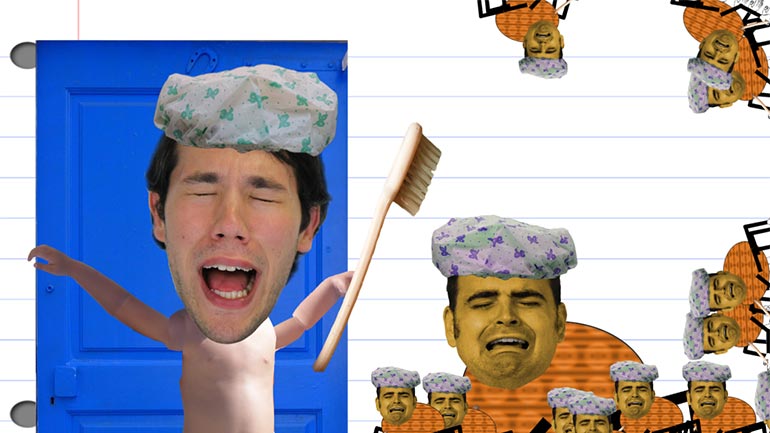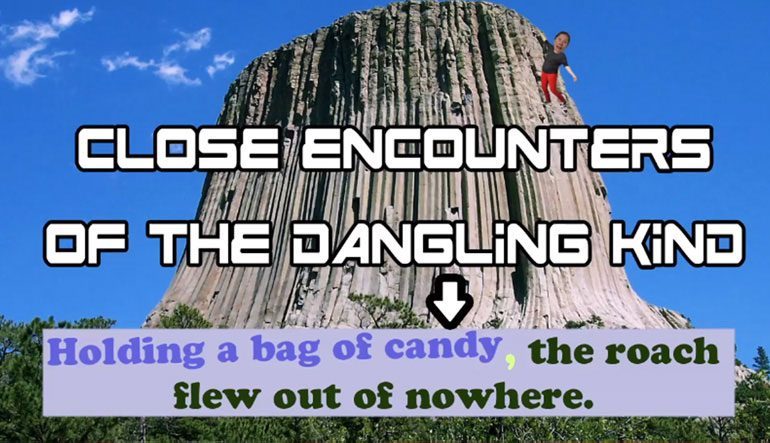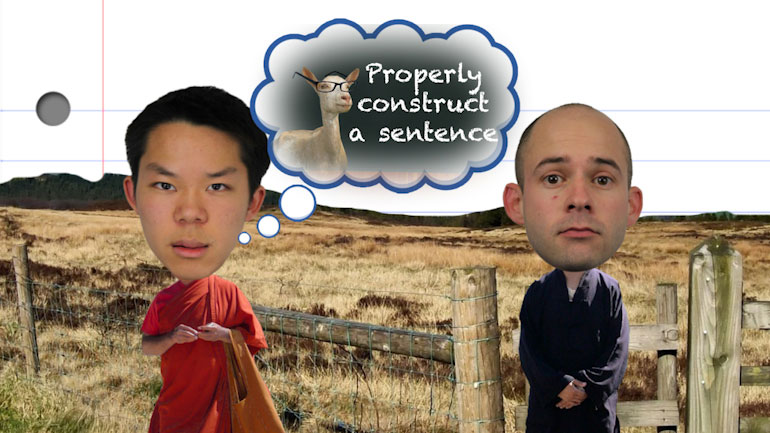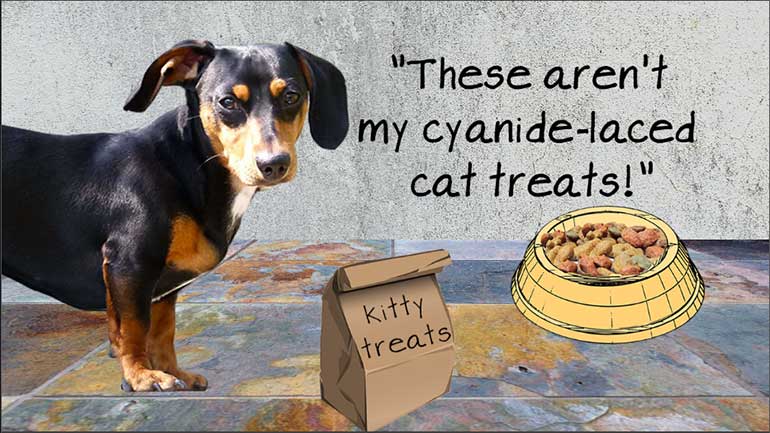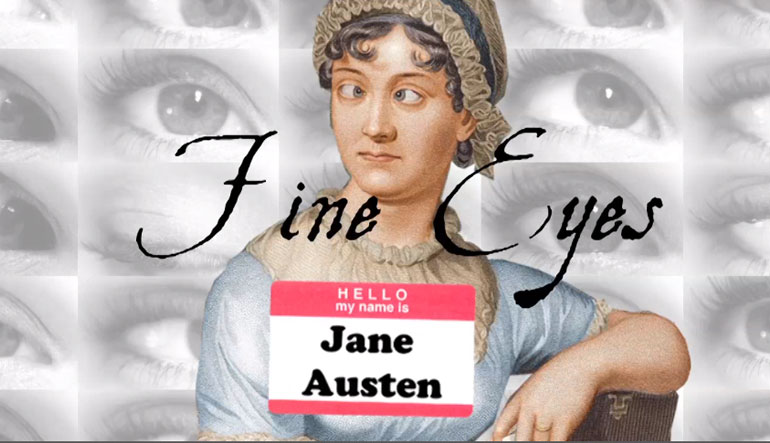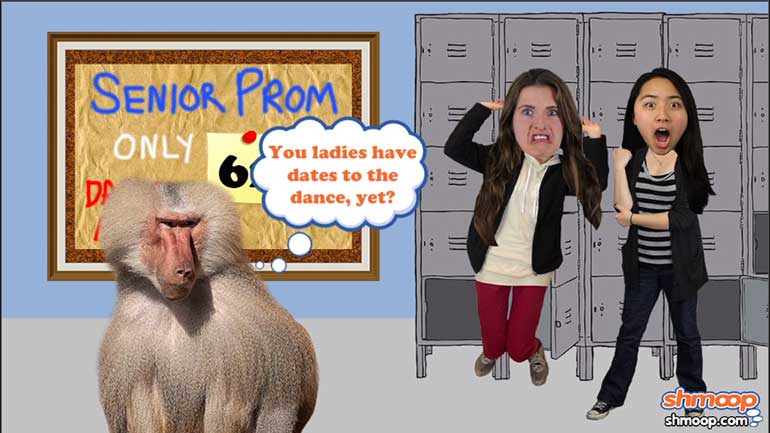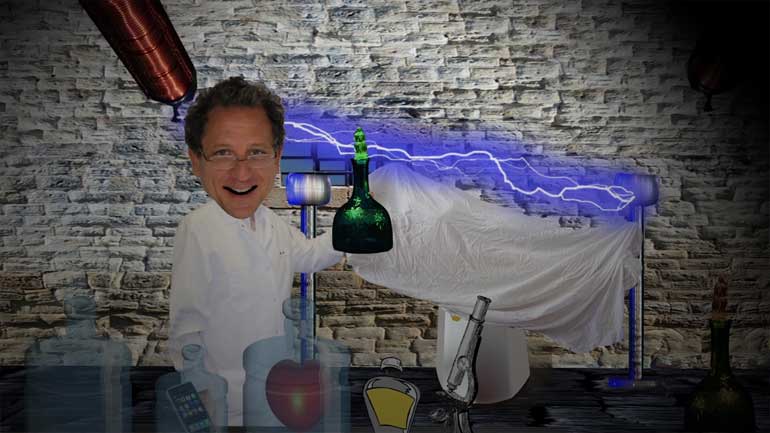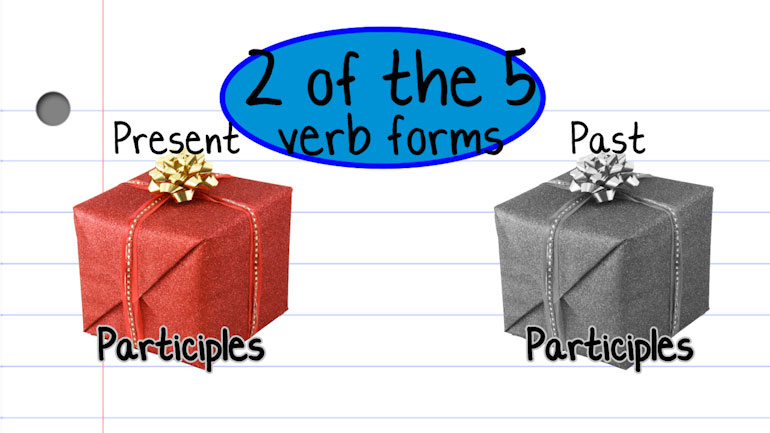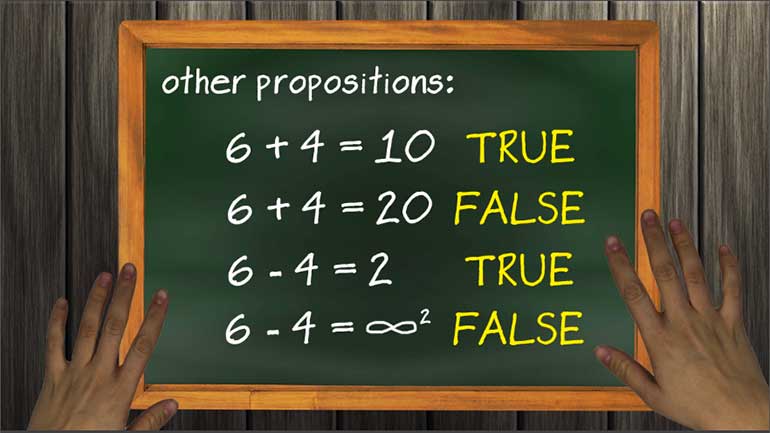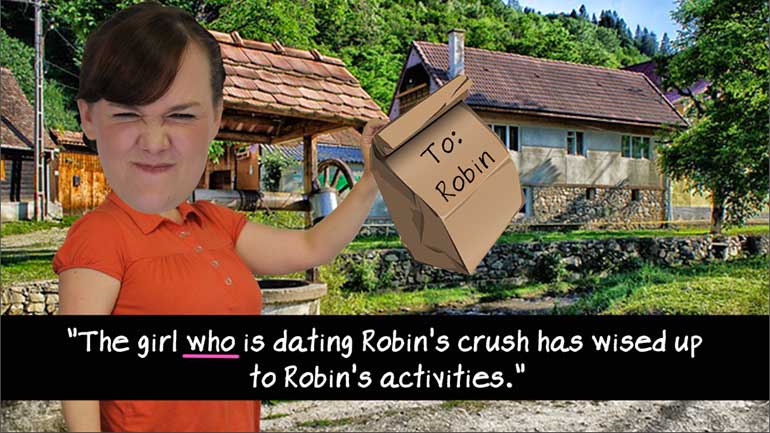ShmoopTube
Where Monty Python meets your 10th grade teacher.
Search Thousands of Shmoop Videos
Grammar Videos 59 videos
Want even more deets on grammar? Click here for all the goods.
Want even more deets on Fewer vs. Less? Click here to review. Or take a look at our entire grammar section for all the goods.
Want even more deets on grammar? Click here for all the goods.
Phrases, Clauses, and Sentences 7484 Views
Share It!
Description:
Want even more deets on grammar? Click here for all the goods.
Transcript
- 00:00
Phrases, Clauses and Sentences, Oh my! a la Shmoop.
- 00:12
Before everyone started speaking in fragments...
- 00:15
...and before all communication consisted entirely of acronyms and abbreviations...
- 00:22
...there used to be these things called "sentences."
- 00:25
As a bit of a history lesson...
Full Transcript
- 00:27
...as well as something to help you compose an essay that won't make your teacher's stomach
- 00:32
turn...
- 00:32
...let's examine a sentence, and see what makes it tick.
- 00:37
As you may already be aware, a sentence has both a subject and a verb.
- 00:41
It also has things like a capital letter at the beginning and some form of punctuation
- 00:45
at the end.
- 00:46
A foreign concept, we know. But those are just the basics. To make a sentence
- 00:51
really zing, pop, and wow...
- 00:53
...you'll want to experiment with phrasing.
- 00:55
Otherwise, your sentence is just going to lie there, like a dead fish.
- 00:59
It's going to stink like one, too. So... what exactly is a phrase, and how do
- 01:04
we use it to make our sentence awesome.
- 01:06
A phrase is really just a series of words you add to an otherwise boring sentence to
- 01:11
add description, explanation, context or color.
- 01:17
Phrases are needy... they can't exist on their own. They need to be part of a sentence in
- 01:21
order to survive. Total parasites.
- 01:24
A phrase can also have a subject or a verb, but not both. It you're reading something
- 01:29
with both, it's more likely a sentence.
- 01:33
So, take a sentence like "The cat ran." Whoop-dee-do.
- 01:37
If we add a phrase, we can turn it into "The cat with the extraordinarily long tail ran."
- 01:45
Still not a thrilling story, but at least we can clearly visualize this freakish animal.
- 01:50
"The cat with the extraordinarily long tail" is what's called a "noun phrase," because
- 01:56
it contains a noun.
- 01:58
The noun being "cat." Yeah, "tail" is a noun, too, but the cat is the subject here. Because
- 02:05
without the cat, we'd just have a tail, floating in space.
- 02:09
Which would really drive the neighbor's dog cray-cray.
- 02:11
Well, if there's a noun phrase, there must also be a "verb phrase," right?
- 02:15
You're so smart.
- 02:16
If we turn our original sentence into "The cat ran through the courtyard singing show
- 02:21
tunes"...
- 02:22
...we've once again made our sentence more interesting...
- 02:25
...except this time we're focusing on an action rather than on the physical description of
- 02:30
a noun.
- 02:30
So here, our verb phrase is "ran through the courtyard singing show tunes."
- 02:37
We're guessing... something from Cats. Now, what if we do something totally nutso...
- 02:46
...and combine our noun phrase with our verb phrase?
- 02:49
We get, "The cat with the extraordinarily long tail ran through the courtyard singing
- 02:55
show tunes."
- 02:56
Now that is one cat we'd like to get to know a little better.
- 02:59
However, there's one more tool we can use to make our sentence even more baller... a
- 03:05
"clause."
- 03:06
Put those away, cat. Other kind of "claws."
- 03:09
A clause actually can contain both a subject and a verb...
- 03:12
...but what makes it stand out is that it tells the reader a little something more about
- 03:17
the subject than a basic, skin 'n bones sentence.
- 03:20
We could say, "The cat ran, but he didn't make it to the bus on time."
- 03:24
We don't have that detailed description of his tail, and we don't know if he was singing
- 03:28
anything as he ran...
- 03:30
...but it's certainly more informative than "The cat ran."
- 03:33
We know what you're wondering. "Can we put together all three of these phrases, to make
- 03:38
the most incredible sentence of all time?
- 03:40
You betcha. "The cat with the extraordinarily long tail ran through the courtyard singing
- 03:46
show tunes, but he didn't make it to the bus on time."
- 03:50
Not only is this sentence insanely interesting, but it also contains a moral:
- 03:54
Save your singing for the shower, unless you want to be late for cat school
- 03:58
Having a knowledge of phrases and clauses in your back pocket will help you class up
- 04:02
your sentences...
- 04:04
...it will make your work more fun to read and, quite honestly, more fun to write, too.
- 04:10
Just don't have too much fun. You don't want your teacher to catch you enjoying yourself.
Related Videos
This video explains the difference between affect and effect and provide tips for remembering which is which and when to use each one. If you suffe...
Want even more deets on Question Marks? Click here to review. Or take a look at our entire grammar section for all the goods.
Want even more deets on Your vs. You're? Click here to review. Or take a look at our entire grammar section for all the goods.
What’s the difference between its and it’s (spoiler alert: it’s more than just an apostrophe). This video covers the use of both of these wor...
